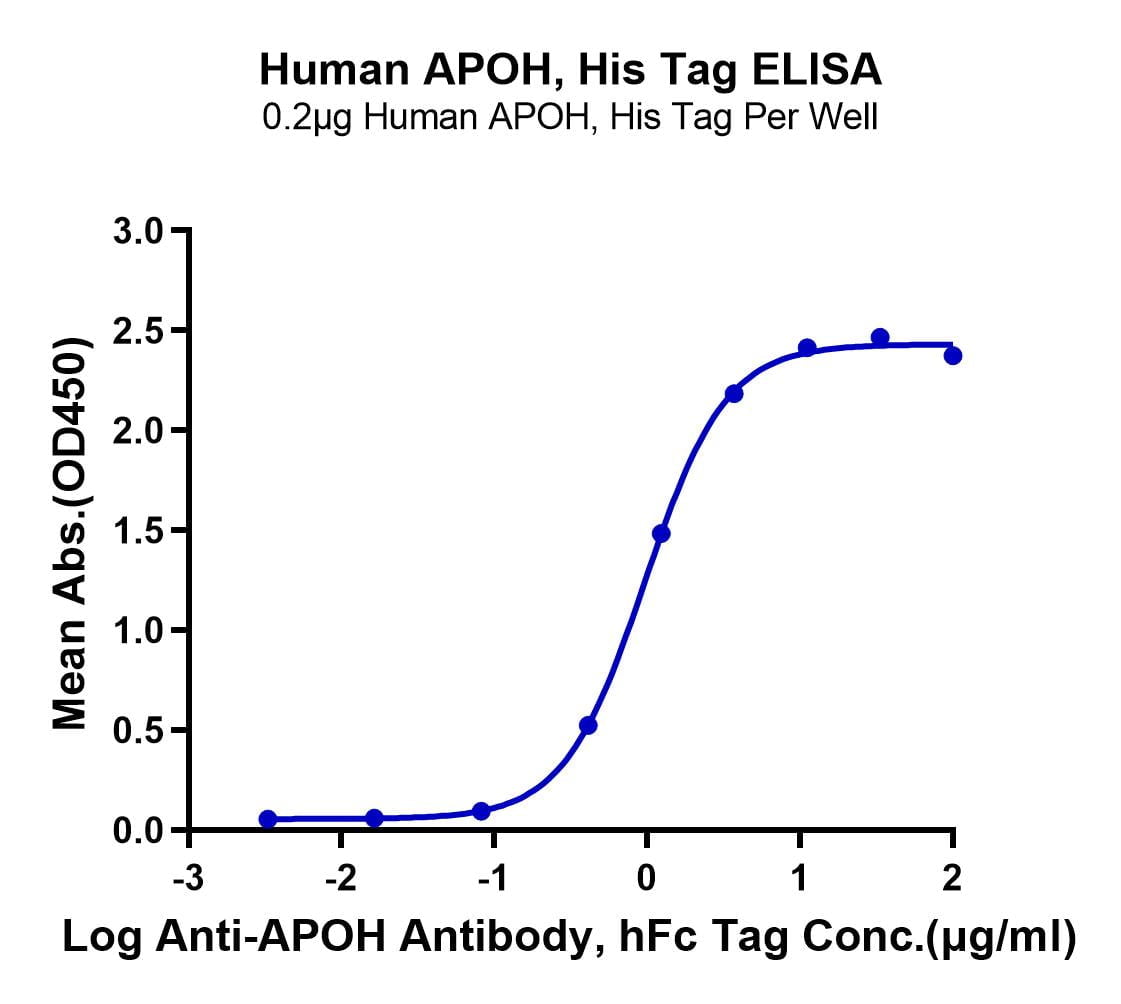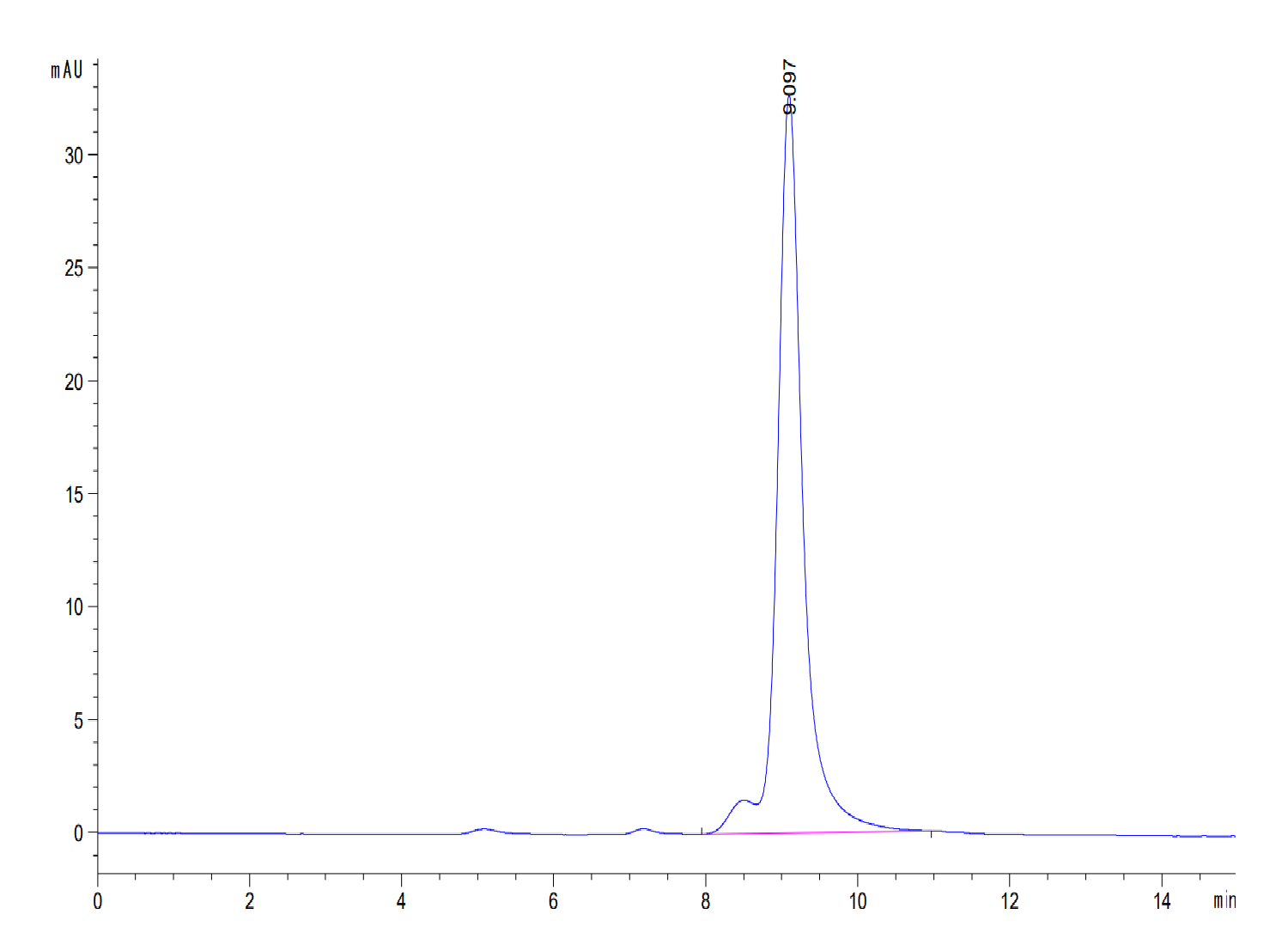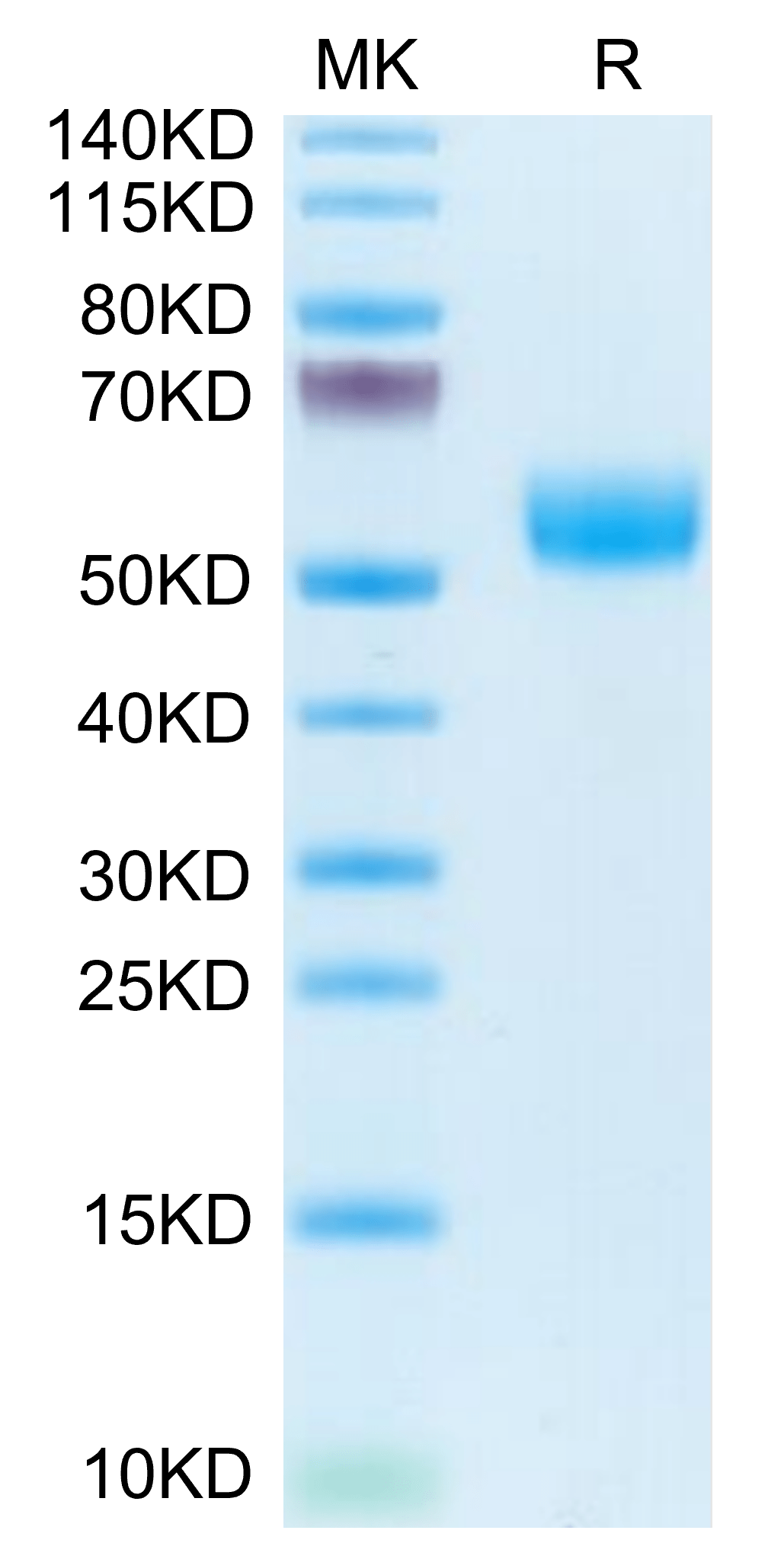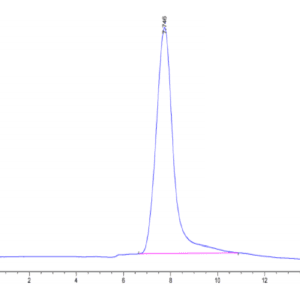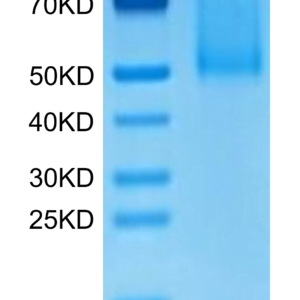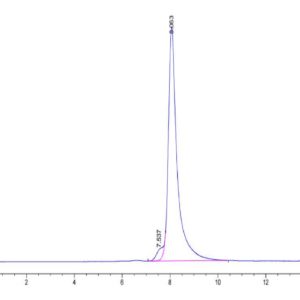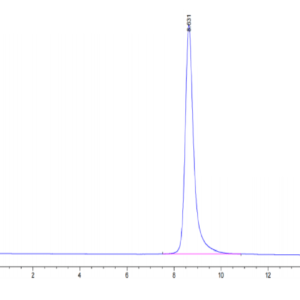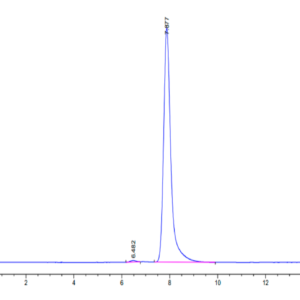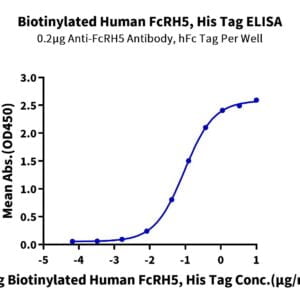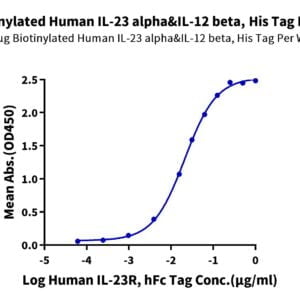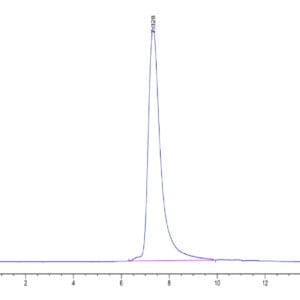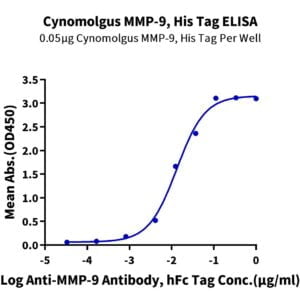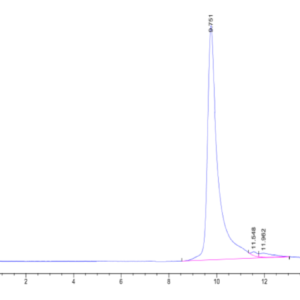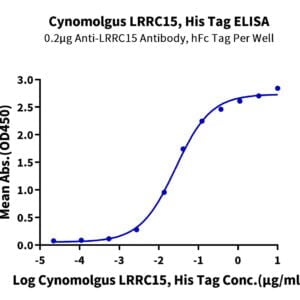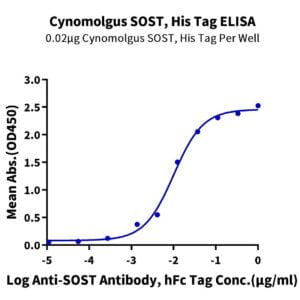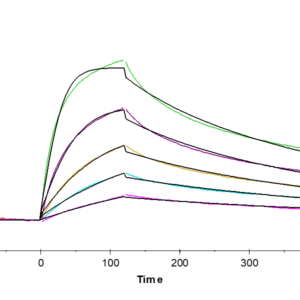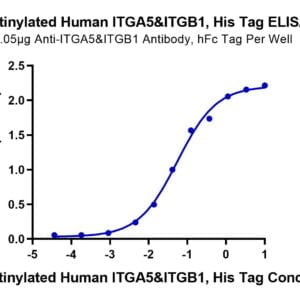| Weight | 1 lbs |
|---|---|
| Dimensions | 9 × 5 × 2 in |
| accession | P02749 |
| express system | HEK293 |
| product tag | C-His |
| purity | > 95% as determined by Tris-Bis PAGE;> 95% as determined by HPLC |
| background | Apolipoprotein (apo)H (also known as beta 2 glycoprotein-I) is a glycoprotein synthesized by liver cells and it is present in the blood associated with plasma lipoproteins. APOH displays a genetically determined structural polymorphism: three alleles (APOH*1, APOH*2, APOH*3) at a single locus on chromosome 17 code for different isoforms, and population studies have shown that APOH*2 is the most frequent allele. |
| molecular weight | The protein has a predicted MW of 37.4 kDa. Due to glycosylation, the protein migrates to 52-60 kDa based on Tris-Bis PAGE result. |
| available size | 100 µg, 500 µg |
| endotoxin | Less than 1EU per μg by the LAL method. |
Human APOH Protein 3753
$240.00 – $800.00
Summary
- Expression: HEK293
- Functional: Yes (ELISA)
- Amino Acid Range: Gly20-Cys345
Human APOH Protein 3753
| protein |
|---|
| Size and concentration 100, 500µg and lyophilized |
| Form Lyophilized |
| Storage Instructions Valid for 12 months from date of receipt when stored at -80°C. Recommend to aliquot the protein into smaller quantities for optimal storage. Please minimize freeze-thaw cycles. |
| Storage buffer Shipped at ambient temperature. |
| Purity > 95% as determined by Tris-Bis PAGE |
| target relevance |
|---|
| Apolipoprotein (apo)H (also known as beta 2 glycoprotein-I) is a glycoprotein synthesized by liver cells and it is present in the blood associated with plasma lipoproteins. APOH displays a genetically determined structural polymorphism: three alleles (APOH*1, APOH*2, APOH*3) at a single locus on chromosome 17 code for different isoforms, and population studies have shown that APOH*2 is the most frequent allele. |
| Protein names Beta-2-glycoprotein 1 (APC inhibitor) (Activated protein C-binding protein) (Anticardiolipin cofactor) (Apolipoprotein H) (Apo-H) (Beta-2-glycoprotein I) (B2GPI) (Beta(2)GPI) |
| Gene names APOH,APOH B2G1 |
| Mass 9606Da |
| Function Binds to various kinds of negatively charged substances such as heparin, phospholipids, and dextran sulfate. May prevent activation of the intrinsic blood coagulation cascade by binding to phospholipids on the surface of damaged cells. |
| Subellular location Secreted. |
| Tissues Expressed by the liver and secreted in plasma. |
| Post-translational modification N- and O-glycosylated. PubMed:6587378 also reports glycosylation on 'Asn-188' for their allele. |
| Target Relevance information above includes information from UniProt accession: P02749 |
| The UniProt Consortium |
Data
Publications
Publications
| pmid | title | authors | citation |
|---|---|---|---|
| We haven't added any publications to our database yet. | |||
Protocols
| relevant to this product |
|---|
Documents
| # | ||
|---|---|---|
| Please enter your product and batch number here to retrieve product datasheet, SDS, and QC information. | ||
